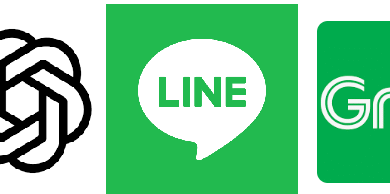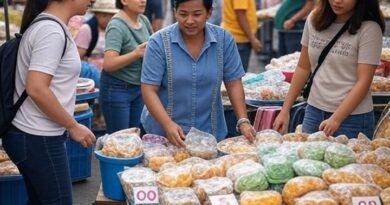Essential Thai Phrases for Travelers in Pattaya
Last Updated on September 27, 2025 by admin
Traveling to Pattaya, Thailand can be an exciting adventure, but knowing a few basic Thai words and phrases can enhance your experience. It’s fun and shows respect for the local culture. Here, we’ll explore some essential phrases. It may be “cave man” Thai, but we err on the side of having fun, ease of use, and memorability. You’re not going to school to learn formal Thai: you’re a traveler having fun and showing respect.
In Thai culture, adding ‘kup’ if you’re male and ‘ka’ if you’re female reflects politeness. It’s important to use these endings in conversations to show respect. Some Thai men say ‘krap’ or ‘krub’ and that’s more correct; but it’s easier to say and remember ‘kup’ as a beginner.
Essential Thai Phrases
1. Hello – sawadee (kup/ka)
This universal greeting will be handy on your travels. Again, end with ‘kup’ or ‘ka’ as per your gender. You’ll often see this written as ‘sawasdee’ with an ‘s’; but the ‘s’ is always silent.
2. Thank you – khob khun (kup/ka)
This phrase is crucial for expressing gratitude. When someone says it to you, you can reply: “khob khun” or “mai pen rai” (“it’s nothing”) to say You’re Welcome.
3. Yes – chai (kup/ka)
This simple affirmation is essential in various situations, such as when agreeing with locals.
4. No – mai chai / mai (kup/ka)
Use to refuse something politely. Use “mai chai” to answer “no” to a question and “mai” to negate something, e.g. “mai ped” (no spice).
5. How much? – tao rai (kup/ka)
Pronunciation: “TOW-rye” (TOW like “cow,” RYE like the grain)
Use: Point at item and ask this
This phrase is perfect for shopping and bargaining in the local markets. Baht is the Thai unit of currency. To learn even more, read our guide to How to Bargain in Thai.
6. No spice / a little spicy – mai ped / ped nit noy
Thai food can be a shock to the system. At baseline, Thai food is rather spicy.
7. Delicious! – aroy mak
To show appreciation to a food vendor or server, you can say ‘aroy mak!’ (delicious) or ‘aroy mak mak!’ (very delicious) if you’re over the moon about something. ‘mak’ means ‘very’ and ‘mak mak’ is a common suffix to amplify what you’re saying.
8. How are you? / I’m fine – sabai dee mai (kup/ka) / sabai dee (kup/ka)
A universal pleasantry. Adding “mai” to the end of something can turn it into a question.
9. I like it – chope (kup/ka)
Other variants: “chope mak” (I like it a lot) and “chope mak mak” (I really, really like it)
10. It’s ok / no problem / you’re welcome – mai pen rai
Literally, “it’s not anything.”
11. I don’t want it – mai ao (kup/ka)
Pronounce “ao” as in “ow, that hurts!” Handy to say when vendors, tuk tuk drivers, or scammers approach with something you don’t want. For persistent hawkers, try: “mai ao jing jing.” Always with a smile and keep on walking. Thais avoid conflict, generally. Good vibes only.
12. Cute! – nalak
Not terribly practical but can amp up the fun factor. Often written as “narak” in apparent attempts to be “more correct.” But it’s more comprehensible when using the L sound. The same is true for “farang” (foreigner); best to pronounce it as “falang” with an L.
13. Excuse me / I’m sorry – cow tote (kup/ka)
A versatile phrase. You can say it to excuse yourself for a minor mistake or grab someone’s attention politely.
By mastering these basic phrases, your journey in Pattaya can be even more enjoyable and respectful. Why not commit them to memory on your flight to Thailand? If you want to go deeper, download the top apps that translate Thai to English and vice versa.




Pingback: Best Night Markets in Pattaya: A Complete Guide to Shopping and Street Food - Pattaya Guidebook
Pingback: How to Bargain in Thai: Super Simple Guide - Pattaya Guidebook
Pingback: Best Ways to Get From Bangkok to Pattaya - Pattaya Guidebook
Pingback: 10 Quirky, Offbeat & Instagrammable Places in Pattaya You Never Knew Existed - Pattaya Guidebook
Pingback: Lesser-Known Temples in Pattaya: Hidden Spiritual Gems for Authentic Visits - Pattaya Guidebook
Pingback: Pattaya First-Time Visitor Guide: Everything You Need to Know - Pattaya Guidebook
Pingback: Surviving Long Flights to Thailand Without WiFi: Tips and Tricks
Pingback: 20 Culture Hacks for Indian Travelers in Pattaya - Pattaya Guidebook
Pingback: The 5 Best Dating Apps for Pattaya - Pattaya Guidebook
Pingback: Grab and Bolt Hacks for Thailand - Pattaya Guidebook
Pingback: Can You Teach English in Pattaya? Your Complete Guide for 2025 - Pattaya Guidebook